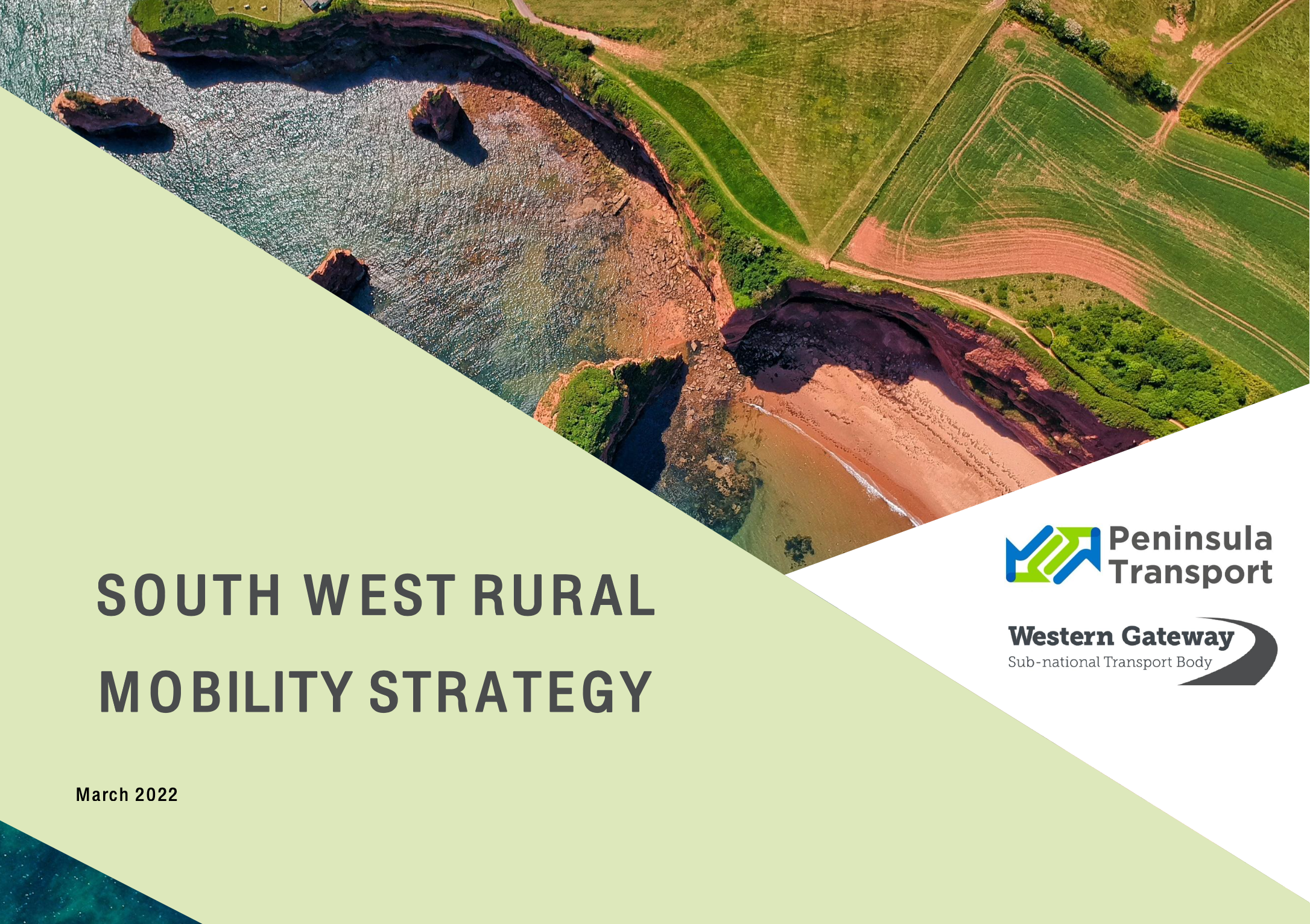Rural mobility strategy for the South West
The South West Rural Mobility Strategy has been jointly developed with Western Gateway Sub-national Transport Body, and sets out how the two STBs will deliver an ambitious vision to improve rural mobility for the communities that need it most.
Decarbonised, publicly available and affordable transport is central to improving rural mobility, as well as increasing choice and providing alternatives to private car journeys. Digital connectivity and mobile services are also key, enabling more to be done without the need to travel.
The strategy has been developed to address these challenges and build new approaches to support rural and coastal communities in becoming more connected and more prosperous. It identifies the locations where rural mobility issues are most pressing and sets out a framework for delivering solutions.
Piloting new approaches will be a first major step in delivering more for rural areas. A wide range of potential interventions have been packaged into bundles that target different types of rural place (rural towns, villages, hamlets and isolated dwellings). Six types of pilots have then been identified to trial the bundled interventions. The next steps will be to develop the pilots into live trials. By running a varied set of pilots there are more opportunities to learn and to develop sustainable models for long-term delivery of mobility in rural areas.
Evidence gathering included analysing 1,400 rural locations across the South West and talking to rural businesses and residents to understand their needs. The development of the strategy also included identifying best practice in the region, UK and globally, and saw more than 100 potential proposals identified and evaluated.
The rural mobility strategy will feed into, and provide invaluable evidence, for our full transport strategy.

